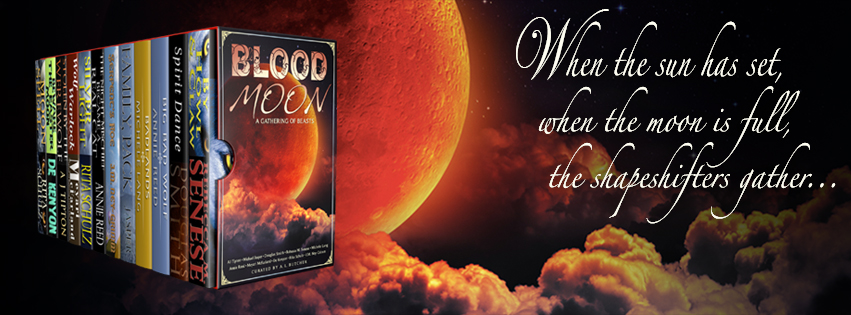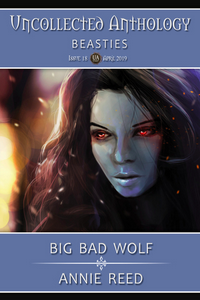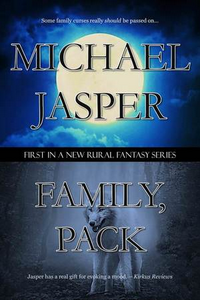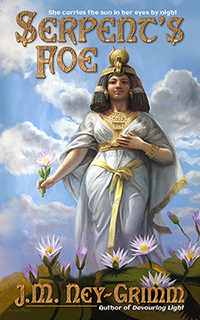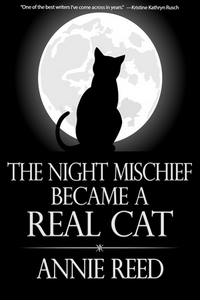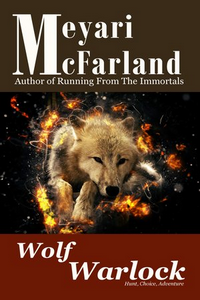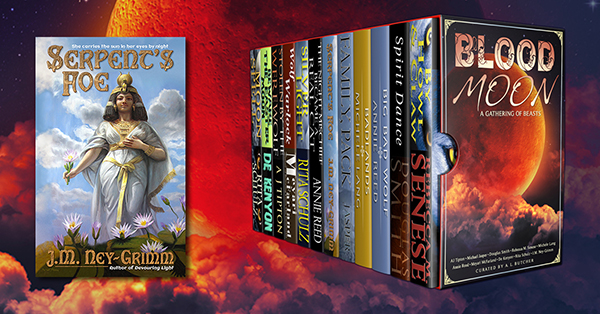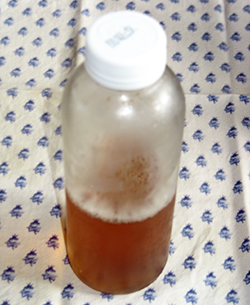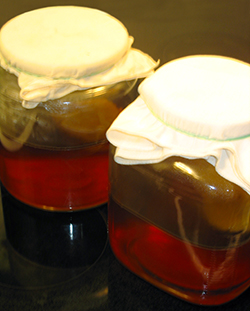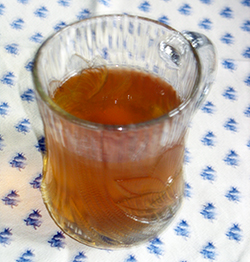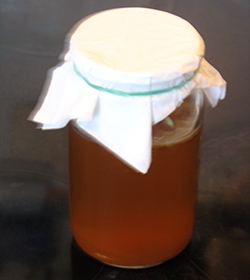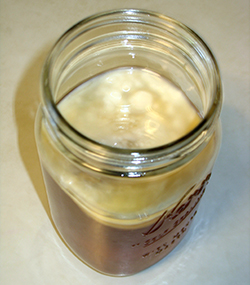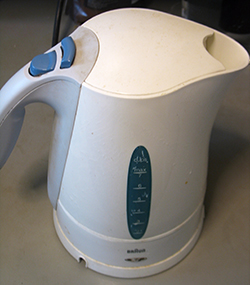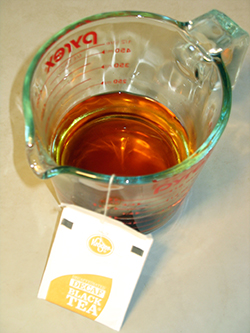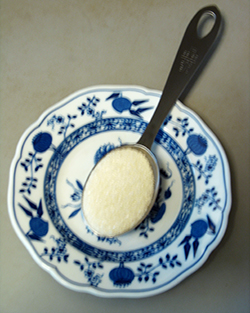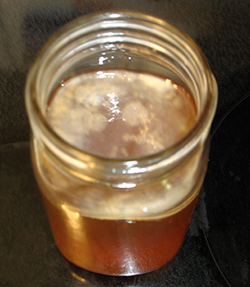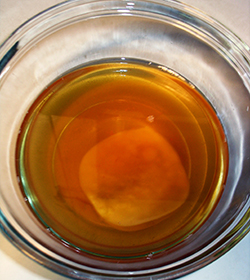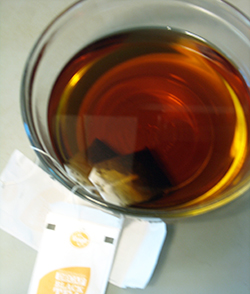 Seven years earlier, Gael had stood on a vast plain beneath a hurrying sky, tattered gray clouds racing below a light overcast, and wheeling crows screaming their hunger.
Seven years earlier, Gael had stood on a vast plain beneath a hurrying sky, tattered gray clouds racing below a light overcast, and wheeling crows screaming their hunger.
The river to the north—the Havreyn—lay beyond sight, but a fringe of trees along the nearer Givenlangid feathered the southern horizon. The stink of river mud well mixed with blood rose nauseatingly from the trampled oats underfoot.
The battle had moved off to the west.
Gael tested his inner senses. Was his king safe? That was the important thing. So long as Heiroc remained hale and whole—unwounded, uninjured, his energea coursing strongly—all was well. Gael bent his full concentration to that task. It was his task as the magus of Hadorgol to protect the king and thus protect them all.
So long as Heiroc lived, all Hadorgol would live.
And he lived, blessed be!
The hurly burly of the fighting—thick about Gael and the king a moment ago—had bludgeoned Gael’s inner sight to darkness. And the outer sight could not tell so much as the inner.
But there, some ways off, shone the king’s characteristic arcs and nodes, blazing silver like a beacon among the less brilliant energea of his honor guard. Gael spared a thought to wonder if it were Heiroc’s bright energea that generated the compelling charisma of his character or the reverse, his charisma that generated his shining energea.
It didn’t matter. Gael loved his sovereign like a brother and always would.
He swung abruptly to the north, sensing something . . . very wrong.
What in Cayim’s hells?
A shivering on the horizon. A rippling movement. Rushing, rolling, an advancing wall of water that was here.
Gael went down under its weight, water in his nose and eyes, sucking mud slamming up to knock him senseless.
He came to an instant later, battered by tree branches and struggling to find footing in the flood, struggling not to gulp river water into his lungs. He clutched at an arm that smashed against his palms and then was torn away. A dead body? He kicked at something less resilient at his feet. A chariot wheel?
And then the wave dumped him down and drained away, while he sat in water up to his neck, coughing.
The king! Where was his king?
Frantic and gasping, Gael swiped water from his eyes and scanned his surroundings. There would be no reopening of his inner sight without the ability to take a slow breath in followed by a slow breath out. His outer sight would have to do.
A smashed and tumbled chariot met his gaze, then the dead charioteer, flung against the cutting blades jutting from the spokes of the battle wheels.
Gael jerked his head around to see a cluster of corpses, all clad in the blue and green tabards of Hadorgol, merciful goddess! No!
Had none survived the marauding river?
But there was Heiroc, climbing to his feet, cropped blond hair sodden, gold-threaded aqua tabard over a coat of bronze scale mail equally so, and his bearded face dragged long by grief for the dead around him: his people, his warriors, his defenders.
The receding flood swirled at his knees. Then his gaze met Gael’s, and his expression lightened. He picked his way forward, saying, “Quickly now, Magus! There’s time yet to salvage something, if we hasten. Come!”
Gael was still coughing too hard to do anything but choke and gasp.
The king heaved him to his feet and led him around the tumbled chariot.
On its far side stood another chariot, this one intact and upright, lacking its charioteer, but possessing a trio of horses still harnessed, snorting and stamping.
“My king, I cannot drive,” protested Gael.
Heiroc grimaced. “But I can!” he answered.
Gael felt his face heating. Of course. He’d forgotten the king raced—most dangerously—in the hippodrome for his rare amusement.
The king went to the horses’ heads, gentling them with low murmurs and the calm of his hands. Then he boosted Gael into the chariot itself, robes dripping, and climbed in to take the tangled reins.
A moment later he’d cleared the reins of snarls and they were off, the horses trotting west.
Gael labored to regain some degree of equilibrium, enough to be more than a hindrance to his sovereign. He had to stop hacking and coughing. Had to.
The expanse of the plain glimmered silver in dimpled ripples. The flood was down to a mere hand’s breadth in depth. It splashed up from the chariot wheels, forming great fans of water whipping away from the wheel rims and blades. In the distance, a lone tree, pricked out in spring green, stretched out spiky limbs against the ragged sky. Beyond it, a mass of men seethed, blades flashing, shields thrusting, the echoes of clashing metal punctuated by earthier thuds and strained cries.
Not every warrior had drowned.
Gael took in a long, slow breath, and his inner sight opened on his out breath.
Tiamar in his Mother’s paradise!
The receding waters gleamed with threads of searing gold.
“That’s troll magery!” snapped Gael.
“Say again,” said Heiroc, focused on guiding the horses over the chancy terrain.
“Your enemy”—Gael hesitated—“your brother has a troll-magus in his train!”
Heiroc hissed. “Dastard! He dares!” The king dropped his hands, and the horses surged forward, breaking out of their trot.
He was right to curse. No civilized regime permitted a troll to remain in its midst, much less cossetted and courted and constrained to work magery for his sovereign’s benefit! Gael was a magus. But he was not a troll magus.
What had Erastys—the king’s brother—done?
And what had Nathiar—Erastys’ magus—become?
Gael squinted, urgent to discern any movement in the troll magery through the gouts of spray flying under the chariot’s increased speed. For those filaments of blistering gold were not quiescent. They writhed and gathered, forming, shaping—Gaelan’s tears!
Beneath the mirror of the waters, the broken blades and lost spearheads stirred, like fish working free of the mud after their winter’s hibernation.
Gael abruptly withdrew his attention from the world of the outer senses. It was the inner world that would protect his king. He breathed in. He breathed out. The soft silver of his arcs sparkled into his awareness. The more vivid glow from his nodes—violet at his crown through aqua and green to silver at the root node, a brighter silver than his arcs—bloomed at each connecting link.
His inner lattice of energea glistened with the health of the unafflicted, and he drew on it, like a man pulling water from a well.
Curling arabesques of silver-edged blue spun from the arcs of his fingers, weaving a net around the energea lattice that marked his king, weaving and brightening and growing to create the shield that would protect Heiroc and Gael and the chariot and its horses.
Just in time.
The web of scorching gold that crawled in the litter of sword blades and spearheads shivered and jerked, then lifted into a spinning whirlwind.
Gael’s vision abruptly doubled. The inner sight showed him a cyclone of shredding gold and amber and black-edged copper light. The outer sight revealed a storm of whirling metal, spattering blood, and flying gobbets of hacked flesh.
The leaves and twigs of the lone tree fountained into hurled confetti. Low-soaring crows became explosions of feathers. And the undrowned warriors—fighting so valiantly for their king—went down to death.
Tears streaked Gael’s cheeks as he strained to uphold his juddering energea under the onslaught.
He knew these men.
Young Laron. Old Milas. And musical Iorgo. Ah, Seya’s son!
If only his shield were great enough, strong enough, enough enough to preserve them all. But it was not. His king must suffice.
More blades lifted from the mud. Ghosts of arrows and halberds, maces and morningstars tore at Gael’s energea.
His shield . . . Must. Not. Fail.
Lightning cracked, flashing blue white.
Was it the storm clouds in the heavens? Or the storm of troll magery drawn from the earth? The rebounding shock kicked Gael from the chariot, the mud rising up to smack his face and knock the breath from his body.
Tiamar! He couldn’t breathe.
Shield. Must. Not. Fail.
He upheld it. Somehow. Through darkening vision and lancing pain. He would protect his king, if it killed him. And it might.
His ears were ringing, and his eyes beheld nothing but blackness. But he could feel the drain on his nodes as his will fed the shield of energea amidst the storm. Upheld it. Upheld it. Upheld . . .
And then the storm died.
Gael let his shield fade.
As his inner sight snapped shut, the outer world demanded his attention. Aching ribs. Throbbing head. Stinging across all exposed skin. And a viciously stabbing agony in his left shin. Broken?
He fought the red darkness closing his outer vision. Gael might be down, but his king was not. Was he? And while Heiroc yet stood, this battle was not over.
Gael’s pain won for an interval.
Three cold drops of rain on the back of his neck cut through the fog of injury. He felt river mud oozing through his robes at belly and breast. He rolled up on his side to see Heiroc climbing to his feet beneath the black branches of the denuded tree. The king had suffered his fall from the chariot without harm, thank Tiamar!
The stamp of boots on the wet earth and the clink of scale mail drew Gael’s blurry gaze away from Heiroc.
Cayim’s death!
The battle might not be lost, but it would be all too soon.
Five warriors wearing the scarlet and orange tabards of Pirbrant over their mail approached, with their king at their head, his magus at his side.
Dizzily, Gael brought King Erastys into focus. He wore a long red tabard, silver-threaded, over a silvered mail coat, and his sword was in his hand. Save for his black hair, clubbed into a thick braid—dark against Heiroc’s blondness—he looked so like his brother that it hurt.
Erastys and Heiroc had been the best of friends and comrades as boys and as young men. Even when their uncle gave Pirbrant to Erastys, the two brother kings had lived as good neighbors. Gael had always counted Erastys a friend. Until Erastys decided he wanted not merely kingship—an unusual honor for a younger son—but sovereignty over his homeland of Hadorgol.
Gael would never forget the pain in Heiroc’s eyes when Erastys’ herald brought his declaration of war.
Hadorgol and Pirbrant—Heiroc and Erastys—had fought a dozen inconclusive battles over the last year. And now Erastys of Pirbrant would win.
Gael’s own heart ached at the thought of Heiroc’s defeat and surrender.
But—there was that drawn sword and murder in Erastys’ eyes. Was it surrender Heiroc faced? Or something darker?
A crow cawed and alit on the shoulder of the man at Erastys’ side. His magus Nathiar.
Gael’s hot belly chilled.
Nathiar, too, had once been his friend: a thin and laughing man with a sardonic sense of humor. They’d learned to manipulate the energea together under old Korryn’s tutelage, sat together in Hadorgol’s court, and served the brother kings together, side by side.
But when a choice had to be made, Nathiar had chosen Erastys.
As Gael studied his old friend, Nathiar veered toward where Gael lay. Nathiar had been human at their last encounter. Now he was a troll. His olive skin remained smooth and unmarred. His straight jet black hair showed no threads of gray. They would come. Only the slight slant to his eyes and the curving elongation of his nose revealed his troll-disease to the outer sight. But, to the inner, his drifting, unmoored nodes left no doubt.
So the rumor was true. Nathiar had attempted to cast a glamour, the most intricate and demanding of magery. Tried and failed. And brought the truldemagar upon himself in the trying.
It explained the flood he had summoned and the deadly whirl of the bladestorm, feats too great for the clean magery of the unafflicted—energea. But not too great for troll magery. What would Nathiar do when the madness came upon him—which it would—given what he had done already?
Gael swallowed down nausea at the memory of the blood and gore exploding under the awakened sword shards and spearheads.
How was it that Erastys could refrain from banishing his magus? How could he dare the risk he courted?
Gael’s patch of ground was more puddle than mud, and Nathiar’s footsteps splashed as he drew near. The water stilled when he stopped to look coldly down upon Gael. Nathiar’s lips pursed, as though he would speak. Gael could not speak, could not find the breath to utter a word, could not find even the strength to be afraid, though he should be. Nathiar could kill him as he lay.
But Nathiar merely shook his head and turned away, hurrying to catch up with his king.
Erastys reached his brother first, ahead of his honor guard, but Heiroc’s blade was out also, and he was ready, receiving the cut of Erastys’ sword on the flat of his own, angling it aside and thrusting Erastys back with his shoulder.
Then Heiroc’s back was to the trunk of the lone tree.
But, Cayim! Seven to one?
Gael tried to get his good leg under him and rise. As though that would do any good—seven to two, and one of those two with a broken leg.
He fell back on his butt as the first of Erastys’ honor guard closed with Heiroc.
Heiroc did something—he was a notable swordsman—and the warrior leaped away, tangling Erastys’ sword arm as he went.
Gael gathered his pain-scattered wits as the next warrior charged in to the detriment of all three. Energea! It was energea he must call on in this last moment. In energea lay his only chance.
It was hard to withdraw his attention from the outer world when his king fought for his life.
The ring of sword on sword, the stamp of lunging feet, and the abrupt thunk of blade on tree sounded as he drew breath and followed the curling silver tracery of his arcs, as they emerged in the inner sight along with his brightening nodes. There was power here, his to use. But what should he do with it?
The crow on Nathiar’s shoulder cawed again, and Gael let his sight go double.
Gaelan’s tears!
Nathiar stood some paces away from the knot of warriors besieging Heiroc at the tree, but his hands were moving in the passes he used for magery. Troll magery.
If Gael failed to act now—
He acted.
The silvery blue of his energea streaked like spears toward each one of his seven enemies, encircled their ankles, and dove down.
With a ghastly sucking noise, the hungry mud simply swallowed the five honor guard warriors, hauling their feet into its deeps and burying them to their heads. Cayim’s blood! Could they breathe?
Gael couldn’t think about that now. His king needed him. Two of the seven foes—Erastys and Nathiar—were yet free, the magus gesturing further magery.
Why had Nathiar left Gael free? But he couldn’t think about that either.
Gael pulled harder on the energea noosing Nathiar’s ankles. Down! He must go down!
Gael’s blue energea flashed green edged with gold, on the verge of troll magery from his effort.
Nathiar drew both arms low behind his hips to throw—
—and Gael yanked his energea with all his might. Gold-edged green flashed to black-edged gold, searing in its intensity. Gael felt something rip within him—instant, scorching fire from crown to root.
And the earth swallowed again, sucking Nathiar elbow deep, just sufficient to trap his arms.
Nathiar’s roar of rage in his ears, Gael blacked out.
The incongruous scent of almonds perfumed the darkness. A woman laughed. Who? Silk hushed against silk. The notes of a lute sounded. Was this forgotten memory? Or dream? Then sounds and scents together whirled away in dizziness to unadulterated darkness.
Slowly, Gael’s awareness climbed out of its sink, returning to the battlefield.
The stink of the mud flooded his nostrils. The moan of someone wounded sounded in his ears. He blinked his eyes open.
Blood dripping down one temple, Erastys wilted against the tree, his brother’s sword at his throat.
“Do you yield?” growled Heiroc, his sword arm tense.
Erastys paled, but shook his head. “No,” he whispered.
Heiroc’s sword arm tightened, and they hung there an instant: the dark brother pinned to the tree, garbed in silver and red, wet with blood; the light brother clothed in bronze and aqua, drenched in river water.
Gael’s vision pulsed in and out as he lay stunned, watching.
Heiroc’s voice an edged hiss, the king commanded, “You shall yield!”
Erastys grew more pale yet, but his eyes narrowed.
“You must yield!” Was Heiroc begging?
Gael suspected his hearing was as injured as his sight and the rest of him. What had happened, there at the end, when something ripped inside him? He feared the answer.
Heiroc cast his sword to the ground, where it clattered against the tree’s roots. “I cannot kill you.”
Swift triumph gleamed in Erastys’ eyes, and Gael would have cried out, had he been able. My king! My king! No!
As Heiroc turned away, Erastys shed his drooping stance—suddenly powerful—and seized his brother by the neck, thrusting him against the bloody bark where, a moment ago, Erastys had languished.
Erastys lifted his sword.
“Do you yield? Brother?” he exulted.
“No,” breathed Heiroc.
“You shall,” gloated Erastys.
“Never.”
“But, yes, my brother. Oh, yes!” Erastys’ teeth gleamed.
“You trade upon my mercy,” snarled Heiroc.
Erastys’ nostrils flared. “I had not surrendered.”
“No. You had not. Nonetheless.” Heiroc’s spurt of temper calmed.
“I shall not be so weak as you. I can kill,” Erastys said.
“I do not doubt it. Brother. Nonetheless. You trade upon my strength, not my weakness.” Heiroc’s tone was stern, and yet something lay under that sternness. What was it, thusly concealed?
“Does that mean you trade upon my weakness, since I trade upon your strength?” mocked Erastys.
Heiroc laughed. Gaelan’s tears!
Erastys tensed his sword arm; and then cast his sword after his brother’s—to the ground—and fell upon Heiroc’s neck in a weeping embrace. Heiroc’s arms went hesitantly around his brother’s shoulders and then snugged him in tight.
It had been love, Gael realized, love beneath Heiroc’s sternness. Even after a year of war, a year of bloodshed, a year of battle after battle. Dastard’s hells!
Awe scudded through Gael’s disorientation, rendering him breathless. When else had he witnessed such compassion? Such forgiveness? Such . . . a bloody waste. Heiroc might cherish tenderness beneath his anger; Gael was not so saintly beneath his awe.
How many warriors had died in the senseless quarrel between brother and brother? How much blood had been shed? How many men now eked out crippled lives, missing arms or legs or both? How many mothers, wives, and daughters lacked sons, husbands, and brothers? How many fields—such as this one—lay trampled by battling armies and fated to yield no harvest come fall?
Gael could not blame his king for defending his kingdom. But if the brothers were going to reconcile their differences in the end—and well they should—why in Cayim’s hells couldn’t they do it at the first, instead of the last? Why in hells hadn’t they done it before that dreadful rip tore through something essential at Gael’s core?
He fell back into a pulsing haze of pain and nausea. The world strobed in and out. The mud under him went hot, went cold, went hot. The cawing crows faded out, faded in. The wheeling sky turned white, turned black.
Gael shuddered. What had happened to him?
Uneasily, he pried open his inner sight. His arcs shivered, their silver edged with gold. His nodes shone the wrong colors: the root red instead of silver, the belly amber instead of white. No! And worst of all—worst—each node floated free of its mooring, no longer properly anchored. He was afflicted.
The brother kings’ open sobs of reconciliation had been cleansing.
Gael’s repressed sob was bitter.
Death or maiming in service to his sovereign was a sacrifice to glory in. This . . . was not.
The truldemagar had claimed him.
* * *
Next scene:
The Tally Master, Chapter 1 (scene 4)
Previous scene:
The Tally Master, Chapter 1 (scene 2)
Need the beginning?
The Tally Master, Chapter 1 (scene 1)
 Later, sitting before his desk in his tally room once again, he thought about what he’d observed.
Later, sitting before his desk in his tally room once again, he thought about what he’d observed.
